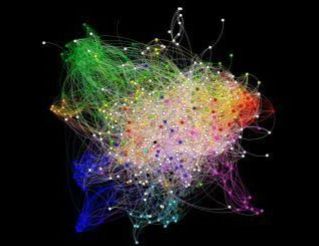Which project just received £1.25m for LGBTQIA+ heritage?
|
|
|
|
|
|
Welcome to Research at Sussex.
This is our fortnightly round-up of the latest research news, insights, and discoveries at the University of Sussex. Please share with friends, colleagues, or collaborators who may be interested in receiving regular updates on our research – they can subscribe here to stay up to date.
In this edition: |
|
|
Sussex secures double research funding success |
|
|
Two teams from the University of Sussex have secured a total of £350,000 in funding from the UK Research and Innovation's (UKRI) highly competitive proof of concept programme to translate their work into real-world impact. The projects will explore how artificial intelligence (AI) can help tackle hard-to-treat cancers and the development of quantum navigation sensors (read more about these projects below).
UKRI received over 2,800 expressions of interest, with just 48 projects selected to receive funding. Sussex was among just a handful of universities to receive more than one award from the programme that supports the commercialisation of research through spinouts and other pathways. |
|
|
Transforming cancer treatment with AI |
|
|
 |
Human protein–protein interaction network |
|
The Pearl AI team are collaborating with the Cancer of Unknown Primary (CUP) teams at several hospitals in Sussex and London to explore how AI can be used to find personalised treatment targets for patients whose cancer’s primary site is difficult to determine.
Cancer treatment is usually based on where the tumour starts in the body – but in CUP cases, the origin cannot be identified. |
|
|
This makes treatment decisions challenging and often leaves patients with limited options and poorer outcomes.
By combining powerful AI tools, rapid cancer genome sequencing, and a unique “bench-to-bedside” research team across Sussex, this project aims to explore ways to transform how these difficult-to-treat cancers are managed and improve patient outcomes.
Above image: Illustration of part of the human protein–protein interaction network. Proteins are shown as circles, and the connecting lines represent physical interactions. In cancer cells, these connections can change, rewiring the network. |
|
|
Prototype development for next-generation quantum navigation sensors |
|
|
A team at the Sussex Centre for Quantum Technologies are working on quantum magnetometers – an emerging technology with the potential to transform navigation.
Magnetometers (OPMs) were developed to create a ‘next-generation navigation system’ and aim to reduce the reliance on GPS navigation, due to its high vulnerability for disruption or to fail entirely in underwater environments. |
|
|
The ultra-sensitive OPM devices use tiny variations in the earth’s magnetic field to pinpoint their location, meaning ships, land vehicles, and aircraft can still navigate even if satellite signals are jammed or unavailable.
This award will accelerate the development of this technology and, over the next 12 months, fund the build of a commercial prototype to be taken forward. |
|
|
Landmark £1.25m investment to preserve LGBTQIA+ heritage |
|
|
 |
Photo credit: Kaleidoshoots |
|
As a partner in Queer Heritage South: Live Archive, we are delighted that the project has been awarded a landmark £1.25m by The National Lottery Heritage Fund, one of the largest single investments in LGBTQIA+ heritage since 1994.
The three-year programme, produced by Marlborough Productions, will create an inclusive digital archive, animate it through public events, and culminate in a major exhibition in 2027, marking the 60th anniversary of the partial decriminalisation of homosexuality. |
|
|
The University of Sussex will help to deliver the project through the Sussex Digital Humanities Lab and the Centre for Sexual Dissidence. We will also host the next phase of public programming: The Coast is Queer Festival of LGBTQIA+ literature (9 to 12 October), in partnership with New Writing South, on campus at the Attenborough Centre for the Creative Arts.
Dr Sharon Webb, Director of the Sussex Digital Humanities Lab (SHL Digital) said:
“Working with Queer Heritage South over the past few years has really shown us how powerful it is to take a collaborative, community-focused approach to heritage work. When queer heritage is collected and protected in a participatory way, it becomes a grassroots effort that truly empowers the people whose stories are being shared, and preserved. SHL Digital is excited to continue this journey and to support this much needed project.”
Explore the Coast is Queer festival programme |
|
|